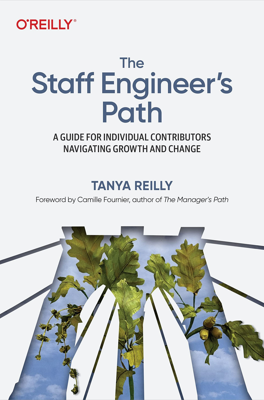You’re a Role Model Now (Sorry)
The Impact of Being a Staff Engineer: Role Modeling and Influencing Behavior
As a staff engineer, your behavior and words carry significant influence, shaping the actions and values of your team. Being seen as a role model, whether desired or not, is inherent to the position. This passive influence is evident in how others within the organization perceive and replicate your actions and decision-making styles.
Operationalizing Core Values and Influence
Company Values vs. Actual Behavior: Officially stated values may not always align with the behaviors that lead to promotions or recognition within the company. Observing which behaviors are rewarded can provide real insights into the actual values of the organization.
Integration of Values: Consistency in actions, such as adhering to stated engineering principles like thorough code reviews and high-quality contributions, sets a standard for others to follow.
Interpersonal Interactions: Beyond technical proficiency, staff engineers influence workplace culture through their approach to teamwork, communication, and problem-solving. Constructive and mature interactions set a precedent for expected behavior amongst colleagues.
Embracing the Role Model Identity
Accepting the role of being a model for others can be daunting but is essential as you advance in seniority. Instead of overwhelming yourself with the need to be perfect, focus on small, tangible actions like recognizing others' contributions publicly or assisting newcomers.
Attributes of a Good Senior Engineer
Four key attributes define effective senior engineering: 1. Competence: Possessing deep technical knowledge and experience, continually updated, and openly shared. 2. Responsibility: Owning outcomes, making informed decisions, and showing initiative to address and solve problems. 3. Goal-oriented: Keeping sight of business objectives, understanding the broader impact of technology solutions, and fostering teamwork. 4. Future-oriented: Planning and acting with consideration for future implications and sustainability of systems and culture.
Building and Maintaining Competence
- Continuous Learning: Emphasize the importance of continual technical growth and education through personal development and mentorship.
- Self-awareness: Recognize and openly communicate your strengths and limitations, fostering an environment where ongoing learning is valued and supported.
- Promoting High Standards: Set high performance and ethical standards in both coding practices and professional interactions.
Responsibility in Action
- Taking Ownership and Control: Proactively manage and influence projects and outcomes, taking responsibility for both successes and failures.
- Decision-making: Make informed decisions confidently and take accountability for results.
- Creating a Respectful Culture: Actively contributing to a workplace environment that values respect and open communication, especially in challenging situations.
Strategic Thought and Planning
- Preparation for Challenge and Failure: Anticipate potential problems and prepare strategies for addressing them, ensuring resilience and flexibility in planning and execution.
- Building for the Future: Design systems and processes with future maintenance, scalability, and potential decommissioning in mind, aiding the longevity and adaptability of technical solutions.
Influence and Leadership
Taking on a staff engineering role involves a transformation from being primarily focused on technical tasks to embracing broader leadership responsibilities. This includes not only leading projects but also being a custodian of organizational culture and influencing the strategic direction through both actions and decisions.
